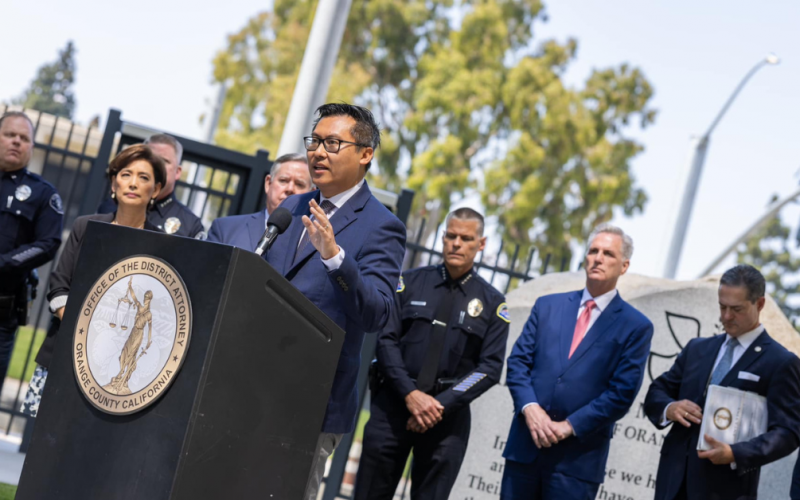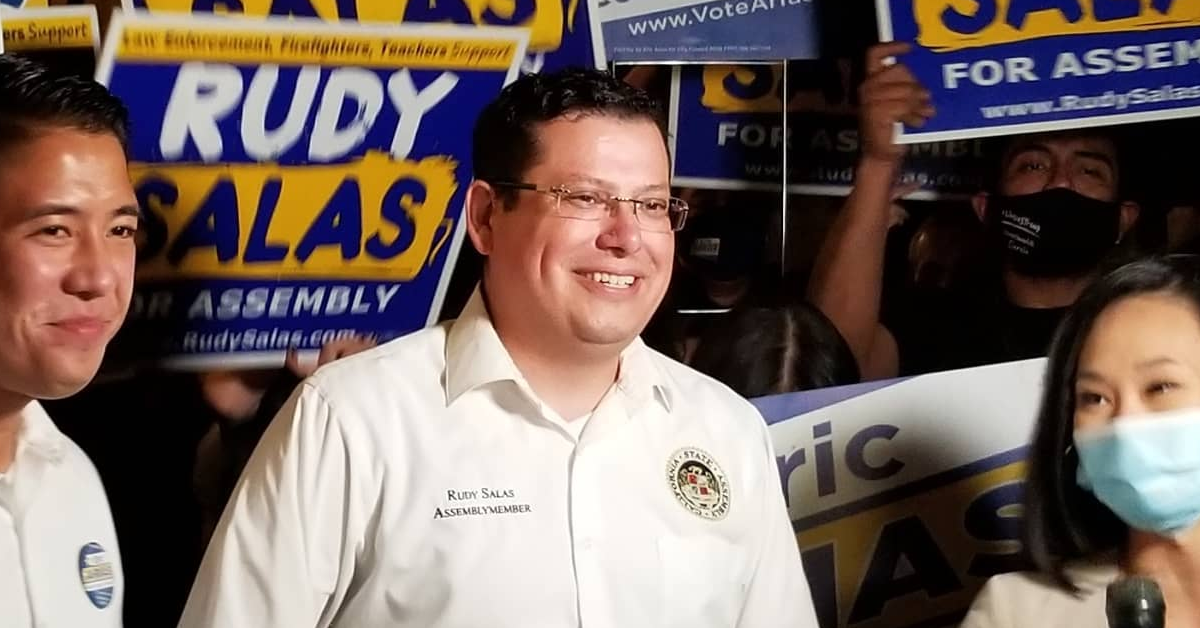California’s 3rd District Court of Appeal heard arguments in Secretary of State Shirley Weber’s case against Asm Vince Fong (R–Bakersfield) to remove him from the ballot for Congress.
After hearing the arguments, the appellate court went into recess and will come back at a later date with a decision, with a critical April 12 election certification deadline looming.
The backstory: Last December Sacramento County Superior Court Judge Shelleyanne Chang ruled that Fong was eligible for the Congressional ballot after Weber sued Fong for running for Congress while already qualifying for the ballot for the Assembly.
- That decision butted up against a century-old state law that has largely limited candidates to run for one public office at a time, up until this point at least.
- In January, Weber filed an appeal with the 3rd District Court of Appeal to overturn Chang’s decision.
- Fong ran unopposed for reelection to the Assembly, winning 100 percent of the vote a singular write-in candidate advancing into the top two for the November general election.
- He also advanced to the general election for the 20th Congressional District, placing in first with nearly 42 percent of the vote.
- Just a couple weeks after the primary, Fong ran in the special election to serve out the remainder of former Speaker Kevin McCarthy’s term and has advanced to a runoff against Tulare County Sheriff Mike Boudreaux in May.
Weber’s argument: Deputy Attorney General Seth Goldstein made Weber’s case to the appellate court, arguing that Chang overlooked long-standing precedent and essentially viewed Elections Code Section 8003(b) in a vacuum.
- Goldstein also argued that the trial court overlooked that the statute should be read in a way to avoid an absurd result.
- “Reading Section 8003(b) as to only apply to independent nominees is such an absurd result. We know that because the trial court itself in reaching its conclusion said that this interpretation ‘somewhat defies common sense.’ And we would argue that an interpretation that ‘somewhat defies common sense’ and appears to depart from 110 years of precedent in interpreting the elections code cannot be the law.”
The other side: Fong’s attorney Brian Hildreth argued that the language in Section 8003(b) is plain and only applies to the independent nomination of candidates, barring candidates from running for multiple offices through the independent nomination process.
- “The Legislature wanted to make clear we’re not only limiting elections to members of parties,” Hildreth said. “If you’re an independent candidate – if you’re not part of a party – you can still run. Here are the limitations. You can run pursuant to Subdivision A and B with those restrictions, and if you decide to run flip over to [Section] 8300, because that’s where we talk about the requirements to actually get nominated under an independent nomination process – which is go out and collect three percent of the registered voters in your district.”
- Hildreth also argued that California courts have unanimously encouraged any ambiguities in election statutes to be resolved in favor of candidacy and in favor of voters being able to have their say.
- “Ultimately we’re all here on behalf of the voters,” Hildreth said. “We’re here because we think the voters should have their say, and we think they’re the ones we should be listening to.”
Goldstein’s rebuttal: Following Hildreth’s time, Goldstein rebutted that there were real harms in allowing Fong to run in both elections.
- “I do think voter confusion is an issue. I think that it also could result in freezing out other candidates. And we’ve seen that because in the Assembly district – because Mr. Fong was the incumbent and he ran again – no one ran against him. And I think that’s a real harm, and it allowed Mr. Fong to sort of have his cake and eat it too and run for two offices at the same time.”










